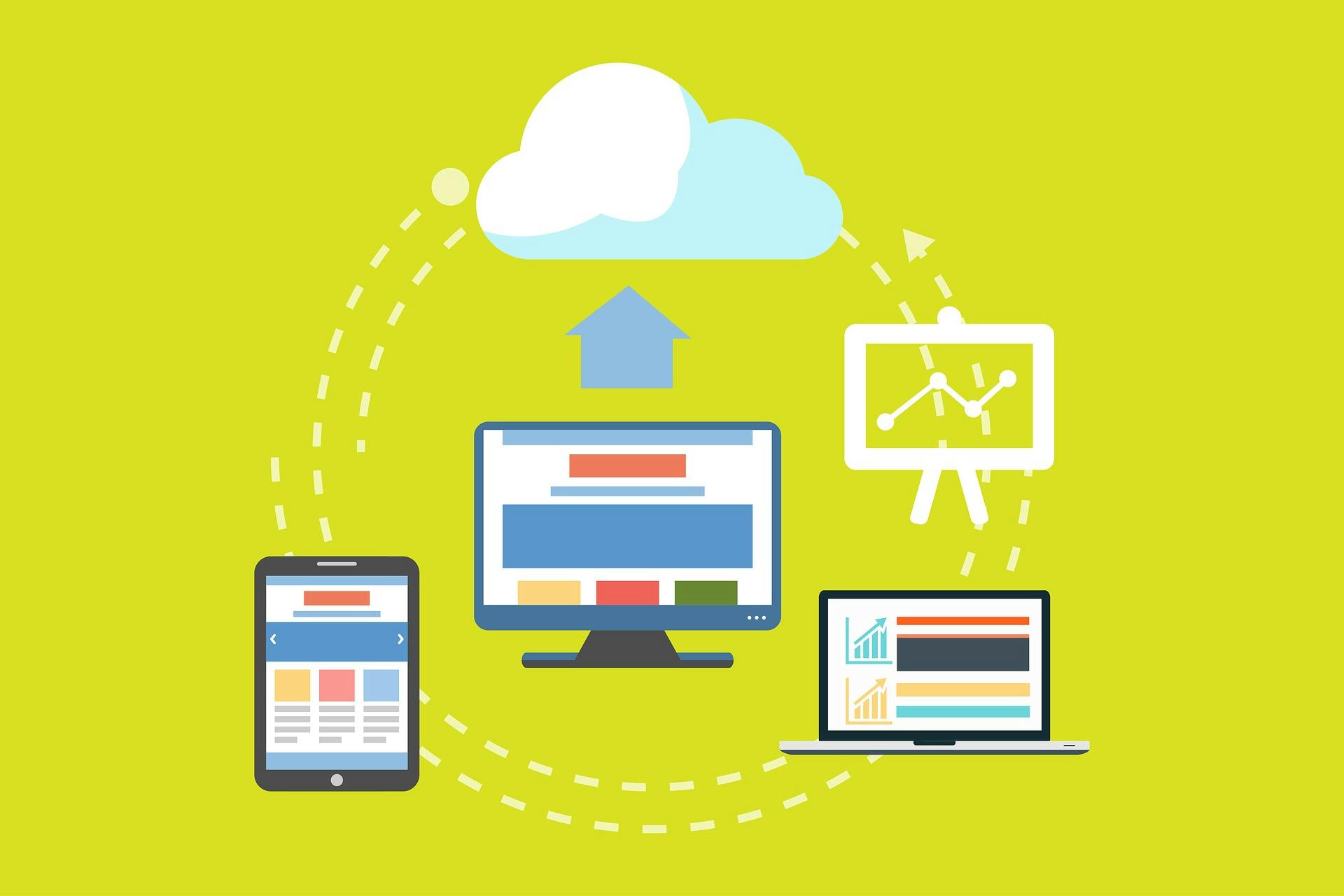Outsourcing your IT services is a great way to cut down on costs without sacrificing high-quality service from dedicated IT professionals. A managed service provider (MSP) will continue to maintain and protect the IT infrastructure your business relies on, just from an offsite location. Businesses of all sizes can benefit from switching from an in-house IT team to an MSP.
What is a Managed Service Provider?
An MSP is a company that remotely manages the IT infrastructures of businesses of all types. It is composed of IT professionals with extensive experience in fields such as IT security, application development & hosting, server monitoring, data storage, and cloud services.
IT Security

Providing IT security is one of the many jobs of MSPs. One way in which they do this is by proactively upgrading your digital security so that there are no vulnerabilities left to be taken advantage of. They will also monitor your websites, servers, applications, etc. for malicious breaches and take preventative measures if one does occur.
Application Development & Hosting
Sometimes off-the-shelf applications don’t provide all the features or integrations you require. For these situations, a custom application is the perfect solution. Your MSP can both develop the application you need and host it either on the cloud or on their own servers.
Server Monitoring
Server monitoring involves three main parts. The first is the actual monitoring of servers for potential issues, such as if they go down. This is done 24/7 so any problem can be caught and addressed in a timely fashion. Preventing issues from occurring in the first place is the second part. Just as IT security has a focus on updating security features so there are no known vulnerabilities, your server will be upgraded to ensure it is always online. Finally, if any issues do occur, they will be fixed as they are discovered.
Data Storage
Data storage can be performed using the cloud and off-site locations. Your data will be stored at a variety of off-site locations spread across diverse geographical regions. This is to prevent a single attack from being able to take down all of the data servers at once. You will then be able to access these servers and the data stored on them via the cloud.
Cloud Services
Cloud services can include all of the above services and more. Security and monitoring can be provided via the cloud, applications can be hosted on the cloud, and data can be stored on the cloud. But the cloud can also be used as the main communications hub for your business as well thanks to digital messaging, VoIP calling, and video calling. And because of all these services that can be done thanks to the cloud, MSPs are sometimes referred to as cloud service providers.
Service-Level Agreements

A service-level agreement (SLA) is a contract agreed to by both the MSP and the customer that lays out what services will be provided, the quality of those services, how that quality will be measured, and potentially even the pricing scheme used. For example, if a customer hires an MSP for cloud-based data storage, the SLA would list data storage as the service, lay out how much storage space the customer will receive, include a way for the customer to see how much space they have left, and probably include a price per amount of storage per month.
While some SLAs will be created on a case-by-case basis to reflect the specific needs of the customer, there may also be multiple, pre-planned SLA tiers for the customer to choose from instead. Under this model, the lower tiers would have lower prices, but would also come with fewer built-in services or a lower quality of service. And on the other side of the spectrum, higher tiers would include more services or higher quality service (e.g. more data or more advanced monitoring).
Managed Service Provider Pricing
MSPs generally use a subscription pricing model for their services. This most commonly takes the form of monthly or yearly payments for the continued use of a service. Within the subscription model, there are three possible sub-models that will generally be used: Per-device, per-user, and all-inclusive.
Per-Device Pricing

Simply put, per-device pricing is when you pay a set subscription fee for each device that’s utilizing the service. If the price is $100 per month per device, then it would be $300 per month for three devices. Additionally, there may be some sort of discount applied as you add more devices. For example, the price per device may be lowered by 10% if you have 10 devices or more using the service.
Per-User Pricing
Per-user pricing functions the same as per-device pricing but is based on the number of user accounts that can access the services rather than the number of devices that can. With this model, a single user can access services on both their work and home computers without paying for both devices as long as they use the same login.
All-Inclusive Pricing
All-inclusive pricing features a flat monthly rate regardless of the number of devices or users. This model can be more expensive than the others for companies that have a limited number of users or devices. But for larger businesses, it can save money.
Single-Transaction Model
The single-transaction model is the opposite of the subscription model in which businesses pay per single-transaction service provided. This model is generally used for services such as one-time setups or fixes and may be seen alongside subscription models for services outside the subscription’s SLA.
Conclusion
Managed service providers, sometimes called cloud service providers, offer a wide range of services including IT security, application development & hosting, server monitoring, data storage, and more. They operate in accordance with service-level agreements and will generally follow a subscription model for pricing.
I.T. Services Group
ITSG has been a leader in the digital security and cloud services industries for decades, and we work with businesses all across the country. If you’re in need of a managed service provider to perform your business’ IT tasks, contact us today.
